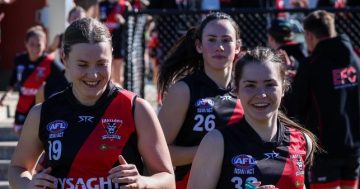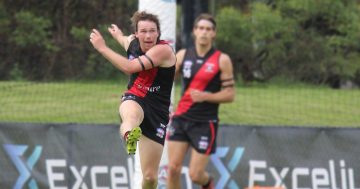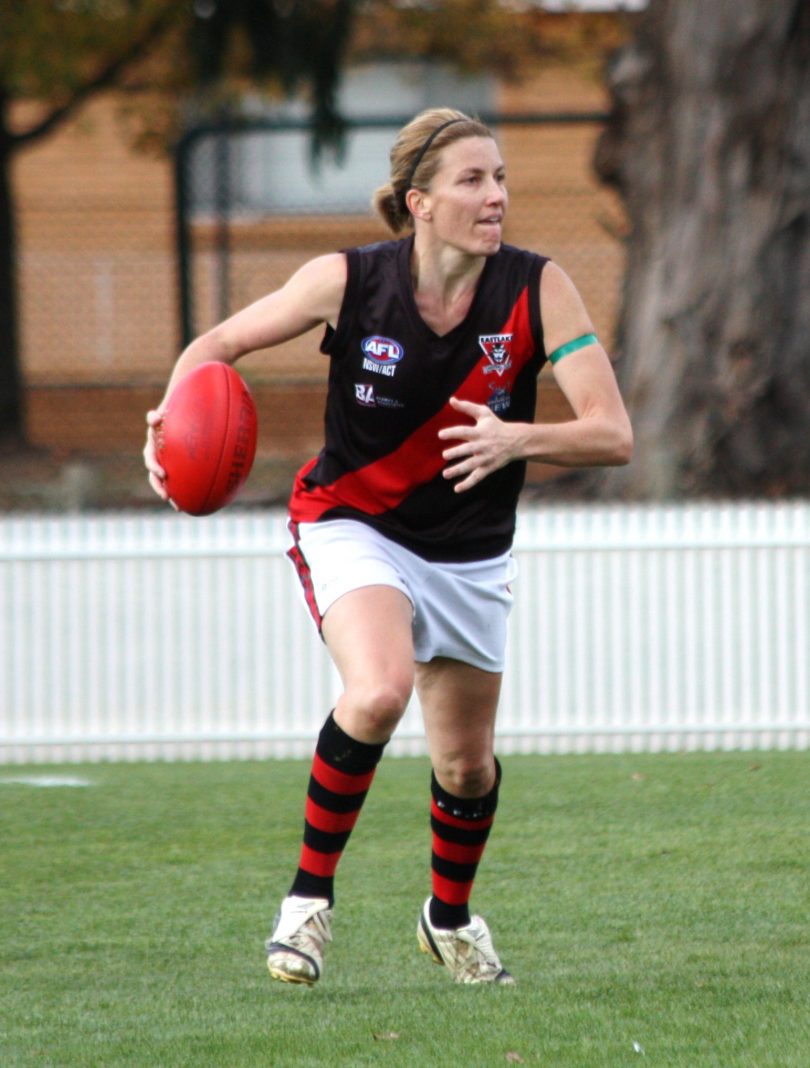
Melissa Backhouse playing for Eastlake Demons. Photo: Supplied.
Until the age of 23, Melissa Backhouse knew nothing about Australian rules football despite growing up in Canberra where the history of the game dates back as far as 1911.
Melissa was a basketballer who serendipitously fell into Aussie rules.
“A friend told me she wanted to start a women’s Australian rules team at Eastlake,” she recalls. “So a group of us moved across from basketball to play. The first season was nine-a-side. I had no idea about the rules.”
When Melissa and friends made their move to the sport, there were few resources devoted to female players. Although things have since changed, there is still a long way to go.
Melissa remembers how an early change came when one of the Eastlake’s members volunteered to coach the team.
“In 2002, we had a coach, Greg Lonsdale, who had recently retired from playing with the senior men’s team,” she says. “He got us training for the first time and taught us a few game plays. We won the premiership.”
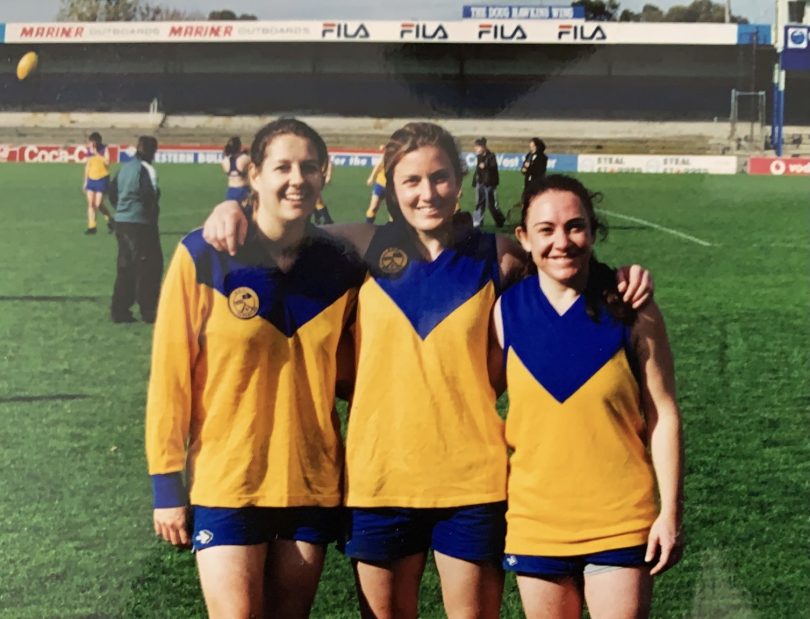
Megan Divett, Melissa Backhouse and Mandy Divett in the ACT team in 2000. Photo: Supplied.For Melissa, it was the first of six premierships in the ACT women’s competition, in a 167-game career for Eastlake.
“We learnt a lot about football in those early days,” she says. “It was great fun. I think the friendships were the most important thing. Some of my teammates from that time are still my best friends.
“Having a squad of 40 meant the coming together of a large group of people of different ages and backgrounds. The culture was great at Eastlake, and everyone was welcome.”
Melissa also played 53 games for the ACT and was selected in the All-Australian team in 2005.
But her work in forging a professional pathway for the current generation of female players is as impressive as her onfield record.
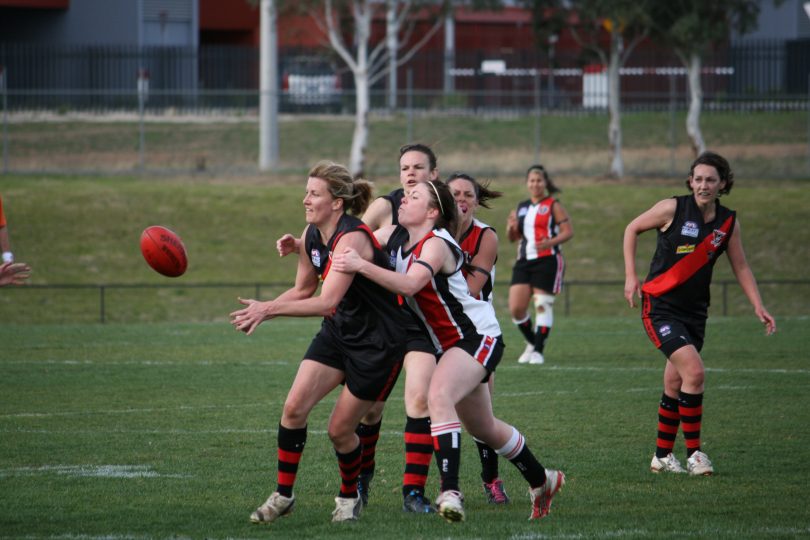
Although competitive, the friendships formed through Australian rules football have been lifelong for Melissa Backhouse. Photo: Supplied.
In the early 2000s, it wasn’t an easy pathway for female players.
“We did our own draw, booked our own grounds and umpires,” says Melissa. “We had to find someone [umpire] who was not required by the men’s competition. Essentially, we had to ring around to find out who was available. We often played at eight o’clock in the morning.”
Back then, Melissa was on the women’s league volunteer committee and as a qualified accountant, she was soon given the treasurer’s role. Things were rustic to begin with.
“When I started, I was given a box of receipts dating back five years to sort out,” she says.
Undaunted, Melissa was determined to make a difference, and her efforts in the formative years of the women’s game in Canberra helped establish what has become the AFLW.
From 2005 to 2009, as president of ACT Women’s Football, she was also a representative on the National Female Football Advisory Committee.
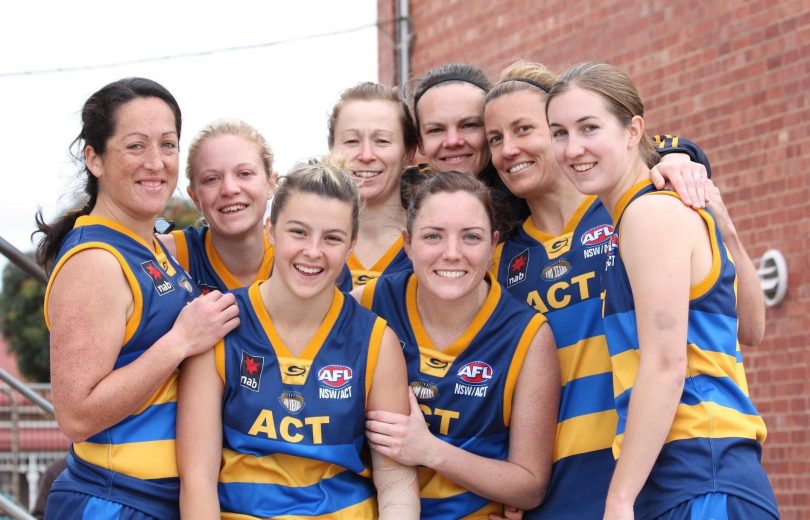
Eastlake representatives in the 2011 ACT team: Raph Jarvis, Lousie Castle, Kasie Nugent, Bek Hall, Sarah Rose, Emily Diprose, Mel Backhouse and Hannah McIntosh. Photo: Supplied.
“We did a lot of work behind the scenes to ensure there was support for women’s leagues around Australia,” says Melissa.
But there was still some way to go.
“We hosted the National Women’s Championships in 2007 in Canberra,” she says. “I project managed the championships, but there was little support from the governing body.”
In 2013, Melissa was honoured for her role in developing women’s football nationally. The Melissa Backhouse Medal was awarded to the best rookie at the National Championships that year.
“I was extremely honoured,” she says. “I think it was more to do with my administrative efforts than my football ability.”
Melissa now looks at the AFLW competition with a certain amount of satisfaction.
“It’s absolutely incredible,” she says. “It has actually happened a lot quicker than I thought it would. AFL clubs are really getting behind it and taking pride in their women’s teams.”
That’s not to say there aren’t areas that need to be addressed.
“As the league has moved into professionalism, it’s disappointing there are no women head coaches in the AFLW [although Bec Goddard will coach Hawthorn in the club’s inaugural season at the end of 2022], and there continues to be limited support and development for female coaches,” says Melissa.
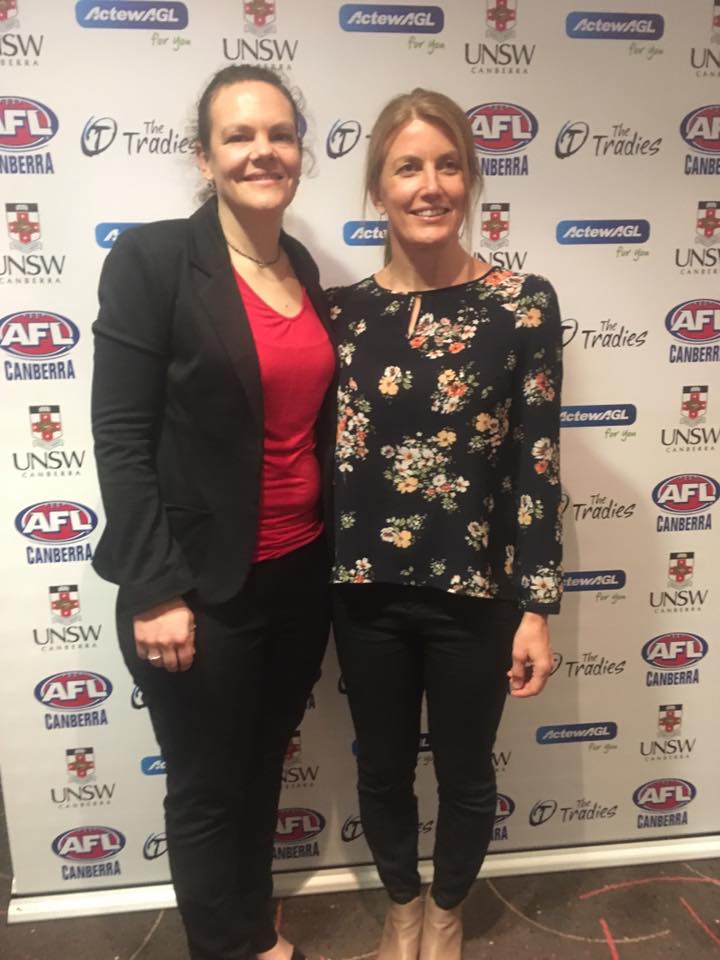
Emily Diprose (left) and Mel Backhouse (right) are Eastlake players who were inducted into the AFL Canberra Hall of Fame in 2018. Photo: Supplied.
Now aged in her 40s, Melissa continues to make a difference in her role on the Williamstown Football Club board in Melbourne.
“Our women’s team has a full-time female head coach and team manager,” she says. “I’m proud to say we are integrating her and the other coaches and staff with the men’s program so they have every opportunity to learn and develop.”
If it wasn’t for people such as Melissa Backhouse, with her drive and determination, there is the possibility that progress would not have been as swift in the development of AFLW.
Her foundation contribution to AFLW has provided a pathway for the establishment of a great sports institution.












